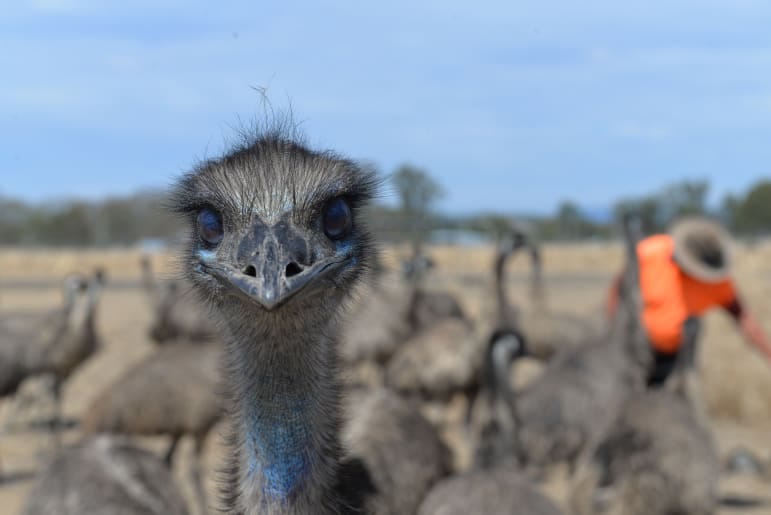Covid-19 drives emu farm expansion
by JOE HINCHLIFFE
An emu farmer in the Scenic Rim is set to defy drought and recession by expanding his business.
Steve Schmidt can run up to 3,000 of Australia’s biggest birds on his Coleyville property, describing himself as one of the last “fair dinkum emu farmers” in the country.
Now he has bought the adjoining block and lodged an application which, if approved, would allow him to run another 2,000 emus.
And far from hurting his business, Mr Schmidt said the coronavirus pandemic was only driving more demand.
“Even with Covid, I can’t get any [government] money, ‘cause I’ve been getting busier,” he said.
“People know emu oil is good for the immune system.”
Mr Schmidt said he couldn’t meet the “massive demand” for both emu oil and meat.
His journey farming Australia’s national emblem began in Marburg more than 25 years ago, when he decided to experiment on his own aches, pains and high cholesterol by drinking emu oil he produced.
Now he speaks with missionary zeal about the oil’s unique cocktail of omegas, which he says can treat everything from arthritis to diabetes.
Claims such as these drove an emu farming boom in the early 1990s.
But Mr Schmidt is among a handful of survivors from that high-water mark, reckoning there wouldn’t be 10 serious emu farms left in Australia.
The issue, he said, was that there were too many birds and not enough abattoirs and facilities to render their oil.
Compounding this is the fact that emus, unlike other livestock, don’t take to live transport and can only be processed in a small window of the year when they have built up enough fat to see them through long periods without food and water.
Mr Schmidt overcame this hurdle by building his own “top-of the-art” facilities and doing everything on farm.
“There wouldn’t be a better emu processing plant in the world,” he said.
Which has allowed him to make the most of an animal which doesn’t come with many of the drawbacks associated with more traditional livestock. Because they eat their own manure, the animals don’t attract flies, and they aren’t smelly or noisy.
“They don't get foot rot, they don’t get flyblown … they don’t get ticks or parasites, provided you’re doing it all properly,” he continued.
“I don't even use wormers, I just use charcoal.”
But most of all, emus are hardy, built to handle everything this harsh continent can throw at them, from frost and ice to desert heat.
Which is what is driving Try It Emu Farms latest expansion. Mr Schmidt said having more land would allow him to better rotate paddocks and “drought proof” his property.
So what does emu meat taste like?
Keep reading with a 7-day free trial
Subscribe to Rural Review to keep reading this post and get 7 days of free access to the full post archives.

